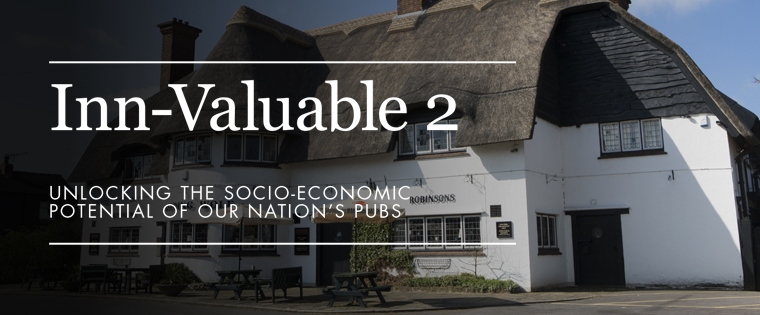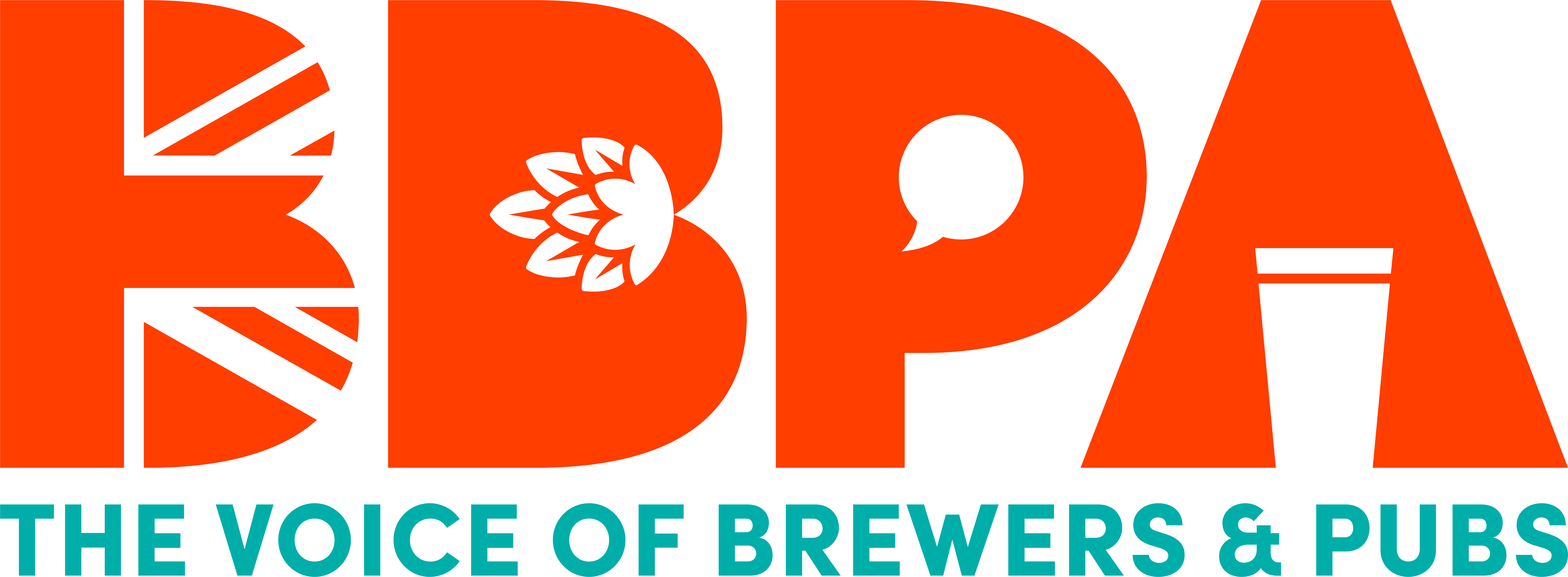Inn-Valuable 2
Unlocking the socio-economic potential of our nation's pubs
Author: Joe Fyans |

The institution that is the Great British Pub holds value to the country in many different ways. At the local level, pubs are high street anchors, cultural catalysts and agents of social cohesion – nationally, they represent an important contributor to the economy and the Exchequer. Running deeper still is the place that ‘the local’ holds in the hearts of many across Britain.
Inn-Valuable 2 is an examination of the value of pubs in the UK and an analysis of the policy challenges to protecting and enhancing this value. Despite their importance to the national economy and the character of local areas, the policy and regulatory landscape in which pubs operate is increasingly counterproductive to the goal of providing long-term sustainability to the sector, even as the government has provided short-term measures of support. Following on from the original Inn-Valuable report in September 2023, this report sets out the route to a more sustainable pub trade.
Download the executive summary and recommendations
Key Points
The value of pubs
The beer and pub sector in the UK contributes a substantial £34.3 billion to the national economy in gross value added. Over one million jobs are supported by this sector, with £17 billion in wages paid. Beyond this, local pubs play a vital role in fostering connections and promoting social cohesion. They have been a part of the UK’s cultural fabric for centuries, providing spaces where people not only strengthen existing bonds but also form new connections. This role as a physical space for social interaction is all the more important in our increasingly digital age, where face-to-face interaction has become a precious commodity.
The British public are supportive of pubs and their role in national life by a considerable majority. Polling commissioned for this report and carried out by YouGov found that 72 percent of British adults believe that pubs have a positive impact in communities. Asked whether pubs were important in bringing people together, 81 percent of British adults felt that they were. The role of pubs in social cohesion is further detailed by the 42 percent of respondents with a local pub saying it holds events which bring the community together, with over half of respondents having met up with friends at the pub in the last three months alone. Asked about the role of ‘the local’ in combatting isolation, 73 percent of respondents agreed that pubs in their area fill this role.
Pubs policy: context and challenges
The current challenges for pubs, and how they interact with key policy issues for the new government, can be broken down into three main areas:
- Tax and regulation. Pubs contribute £6.6bn in tax to the national coffers. This includes VAT and Beer and Alcohol Duty (with the latter having one of Europe’s highest rates) – VAT alone accounted for £4.9 billion in 2022. Like any employer, pubs also pay income tax, national insurance, and corporation tax. Yet the greatest operational challenge for pubs, and policy challenge for government, comes with the need to reform business rates – a local tax which is no longer fit for purpose and must be reformed to move past a system of short-term discounts and emergency measures and towards a long-term, sustainable model.
- Planning and new towns. Recent years have seen gradual steps towards using the planning system to protect against high street decline, with measures to tackle empty premises and reform to the use class system to better protect pubs. The root and branch reforms promised by the new government offer a chance for a more comprehensive look at how high street character can be protected. There is particular hope for pubs in the establishment of new towns, with polling commissioned for this report finding 60 percent of adults view pubs as an important part of a new town centre.
- Jobs and growth. Pubs are significant employers of younger people and part-time workers, as well as localised ‘anchor businesses’ on high streets. With the English Devolution Bill slated to include statutory local growth plans, there is a chance for councils and partners to properly strategise to nourish pubs, hospitality and the wider ‘overlooked economy’ in place.
Recommendations
The short-term: continuing support over longer time frames
- To continue to mitigate the closure of pubs across the country, the government must extend business rates relief for hospitality and increase the window to three years. This would bring the time horizon in line with the next spending review and provide more long-term certainty in the sector.
- To continue to support the production, export and domestic sale of beer in the UK, government must extend the beer duty freeze for another year.
The long-term: fixing the foundations of the UK pub trade
- To halt and reverse the decline of the Great British pub, central government must launch a task force to identify routes to long-term sustainability for the sector. Some considerations for such a body would be:
- Reviewing business rates to look at the possibility of different multipliers for pubs and hospitality, along with the potential to provide discounts for pubs providing social value through diversification.
- Reviewing excise duty to look at how the tax can best support the brewing, domestic sale and export of beer in the UK.
- Providing employment incentives such as tax credits to ensure that necessary increases to the national living wage do not disincentivise pubs in their important role as employers of part-time, younger members of staff.
- Examining planning policies to see how the framework can support the night-time economy, along with pubs as social, cultural and economic anchors in town and village centres.
- The ambitious policy agenda laid out by the government in the King’s Speech 2024 also provides opportunities to increase the long-term sustainability of pubs in the UK:
- The New Towns Taskforce should examine how new towns can boost pubs and hospitality through planning for vibrant town centres.
- As part of their push to drive good growth locally, local growth plans should include sections on the foundational, overlooked and night-time economies of place.
Research sponsored by:

